On Friday, April 13, 2018, the New Orleans Jazz & Heritage Foundation presented a Tom Dent Congo Square Lecture that focuses on the late writer Tom Dent, the history of Congo Square and new research on the history of New Orleans’ Mardi Gras Indians.
The event featuredthree highly respected writers:
• Kalamu ya Salaam, who is the editor of a new compilation of the writings of Tom Dent, titled “New Orleans Griot”
• Freddi W. Evans, author of numerous historical fiction and nonfiction works, including “Congo Square: African Roots in New Orleans”
• Jeroen Dewulf, a Belgian scholar specializing in slavery and African-American culture, whose new book is titled “From the Kingdom of Kongo to Congo Square: Kongo Dances and the Origins of the Mardi Gras Indians”
Kalamu ya Salaam is a poet, author, filmmaker, and teacher from the 9th Ward of New Orleans. A well-known activist and social critic, Salaam has spoken out on a number of racial and human rights issues. A close friend and professional peer of Tom Dent, Salaam served on the Board of Directors of the New Orleans Jazz & Heritage Foundation with Dent from 1979 to 1982. And he immediately preceded Dent as Executive Director of the Foundation (Salaam served from 1984 to 1987, and Dent served from 1987 to 1990).
Tom Dent (1932-1998) was an influential New Orleans writer whose oeuvre reflects the racial tensions of his times – and is equally relevant today. His work spanned an enormous range – fiction, journalism, poetry, and more – and he was a founder of the Free Southern Theater in New Orleans and the Umbra writers collective in New York City.
A new Amistad Research Center/Google Cultural Institute online exhibition features features poems, recordings correspondence, interviews, ephemera, and photographs from the Tom Dent papers, which are housed at the Amistad Center.
In “New Orleans Griot: The Tom Dent Reader” (University of New Orleans Press) Salaam describes his friend Dent as “a combined modern day, culturally grounded ethno-cultural anthropologist facing his past, as well as a public intellectual/cultural activist confronting his present.”
Freddi Williams Evans is an award-winning author, scholar and arts educator. Her work includes three historically-based children’s books and two nonfiction books about Congo Square, including the newly released Come Sunday: A Young Reader's History of Congo Square (University of Louisiana at Lafayette Press).
Her book Congo Square: African Roots in New Orleans (University of Louisiana at Lafayette Press) is the first comprehensive study of one of the New World’s most sacred sites of African American memory and culture. Winner of the 2012 Louisiana Humanities Book of the Year Award, it traces the history and cultural significance of the location from the founding of the city and the early gatherings of enslaved Africans and free people of color to its influence on contemporary popular culture. It provides accounts and descriptions of the songs, dances, musical instruments, religious beliefs and marketing traditions that typified those gatherings. It also includes examples of similar practices that existed in Haiti, Cuba, and other parts of the West Indies, showing not only New Orleans’ connection with the Caribbean but also Congo Square’s role in extending and perpetuating African music and dance in North America. Her research has taken her to numerous national and international locations including Ghana, Senegal, Haiti and Cuba. The French publication of “Congo Square” initiated presentations in France and Senegal. Because of Evans’ work, the New Orleans City Council in 2011 officially restored the name Congo Square to the landmark that in 1993 was added to the National Register of Historic Places.
Jeroen Dewulf is a Belgian scholar who since 2007 has taught in the German department at the University of California, Berkeley. Dewulf works mainly on topics relating to slavery and African-American culture in Dutch Brazil, New Netherland and New York City, most notably the legacy of Pinkster and Sojourner Truth in his 2017 book The Pinkster King and the King of Kongo: The Forgotten History of America’s Dutch-Owned Slaves.
In his latest book, From the Kingdom of Kongo to Congo Square: Kongo Dances and the Origins of the Mardi Gras Indians (University of Louisiana at Lafayette Press), Dewulf presents a provocative new interpretation of one of New Orleans’s most enigmatic traditions. He traces the “black Indians” back to the ancient Kingdom of Kongo and its war dance known as sangamento. Enslaved Kongolese brought the rhythm, dancing moves, and feathered headwear of sangamentos to the Americas in performances that came to be known as “Kongo dances.” Dewulf’s groundbreaking research suggests a much greater impact of Kongolese traditions and of popular Catholicism on the development of African American cultural heritage and identity. His conclusions force us to radically rethink the traditional narrative on the Mardi Gras Indians, the kings of Zulu, and the origins of black participation in Mardi Gras celebrations.



















